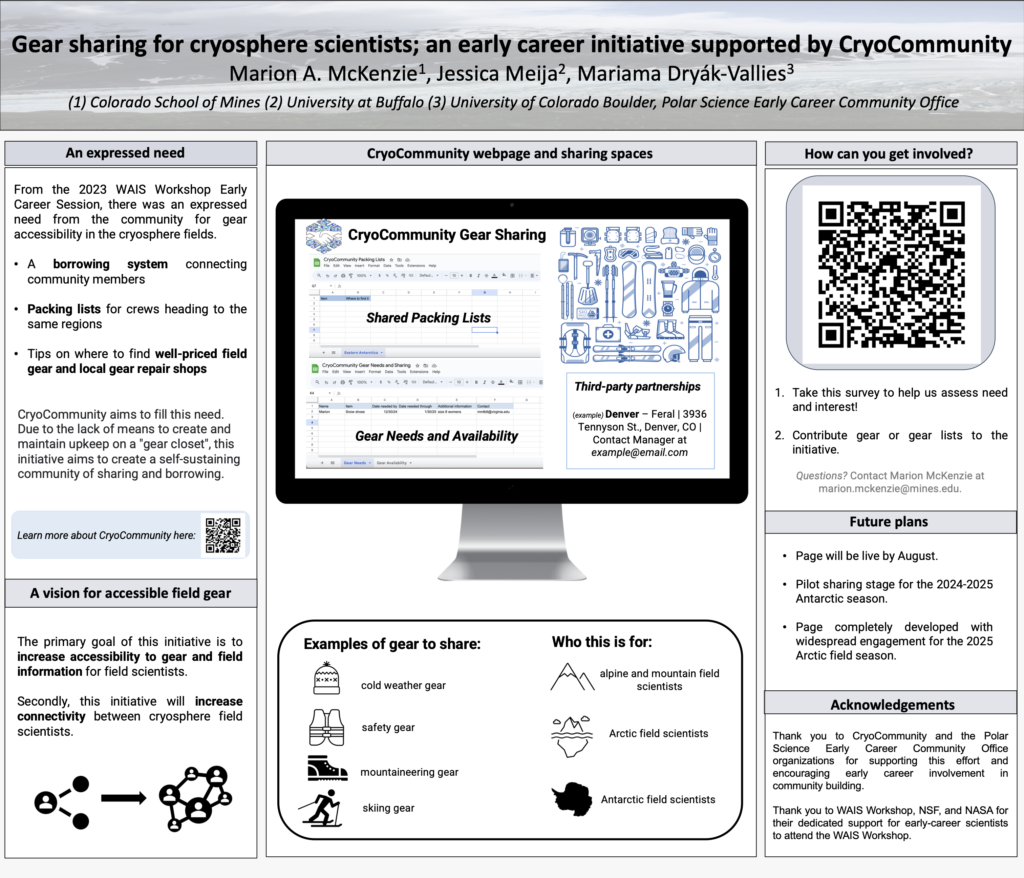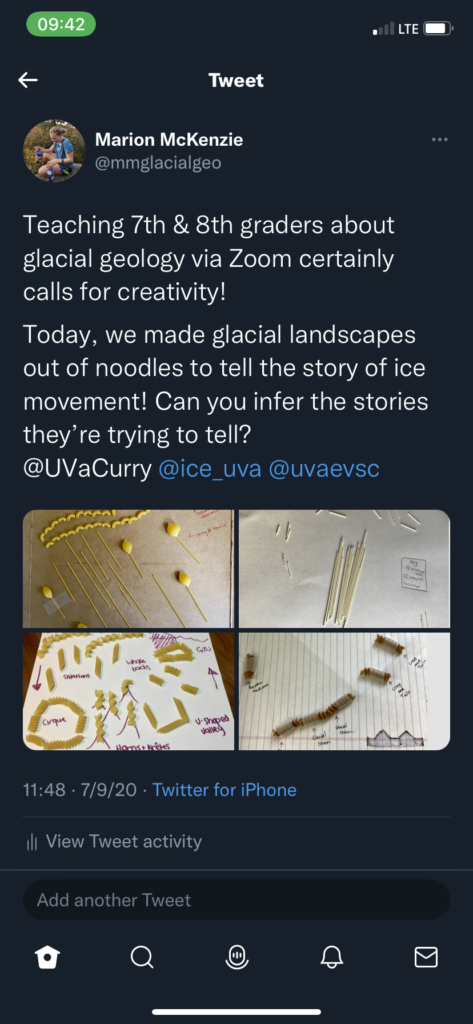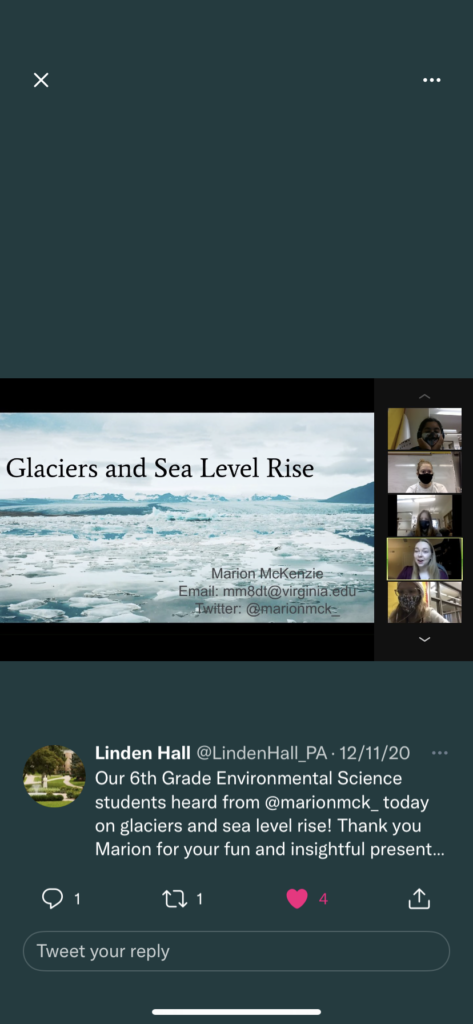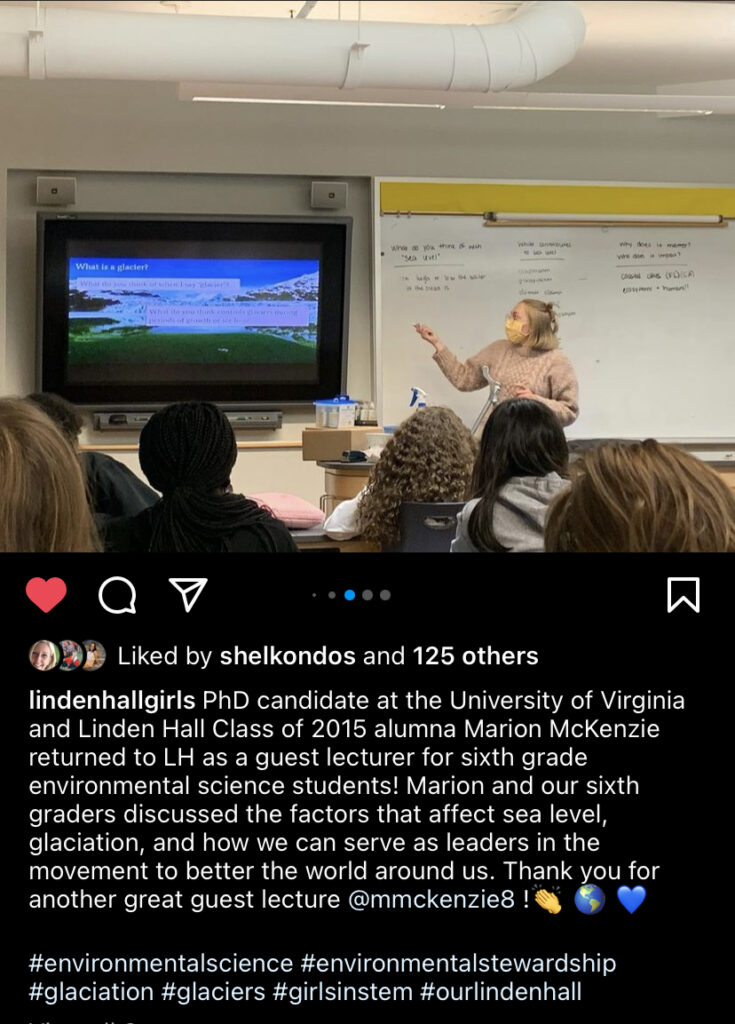Gear Sharing Initiative
Supported by CryoCommunity and Polar Science Early Career Community Office (PSECCO)
A need for connection to resources regarding gear sharing, packing lists, and a list of local used gear shops was expressed at the 2023 West Antarctic Ice Sheet meeting by early career members of the cryosphere community. To address this need, I am developing a webpage through CryoCommunity with support from the Polar Science Early Career Community Office (PSECCO) to directly connect individuals seeking to borrow gear to those willing to lend gear. In addition to providing a platform for these connections, this shared community space will include packing lists for region-specific field work, locations of affordable used or repaired gear in cities across the United States, and lists of ProDeal and other discounts afforded to field-going polar scientists.
The coauthors and I aim for this initiative to become self-sustaining by creating connections across geographically isolated and siloed glaciology departments in lieu of developing and maintaining a localized “gear repository”. A survey was shared with the wider glaciology community to determine direction of efforts (n=25). Among other results, the majority of respondents indicated the gear they would lend is new, slightly, or well used (94.7%). In order to address respondent concerns regarding quality assurance, timeliness of gear receiving/return, transparency of use, sanitation, and responsibility of cost, we will develop a gear lending agreement template that users can adapt for their own purposes.
While we will establish general community guidelines for the gear sharing page, we understand the requirements for particular gear usage may vary widely. With this in mind, those using the page are encouraged to edit the lending agreement to establish expectations for borrowing timelines, responsibility of cost, and other logistical details. Overall, the development of this shared resource is meant to address a gap in field accessibility within the polar sciences and increase opportunity and access to the field for all polar scientists.
To learn more information about this initiative, check out the blog post I wrote for CryoCommunity here. The poster I presented at the 2023 Colorado Glaciology Meeting can be found to the right. For ideas and to share resources, please reach out to marion.mckenzie@mines.edu or CryoCommunity through the “Contact” page.

K-12 Education Resources
I aim to actively engage with students in and outside of the classroom to spark interest in a range of science topics. In the past, outside of being a Teaching Assistant in the Department of Environmental Sciences at UVA, I’ve developed a two-week course for middle-school students called “The Cool Cryosphere!” as part of the Summer Enrichment Program through UVA’s School of Education. Additionally, I have previously been a guest speaker for K-12 Environmental Science classrooms. If you’re interested in having me visit your class or are looking for teaching resources on Earth systems or the cryosphere, reach out to me via email (marion.mckenzie@mines.edu) — I’m happy to share what I’ve found and developed!



Departmental Level Engagement
Community-based work towards diversity, equity, and inclusion (DEI) within the Department of Environmental Sciences (EVSC) at UVA has been some of the most important work I’ve been involved with in my academic career while a graduate student. I was a graduate student member of the department’s DEI committee from its inception in Fall 2020 to Spring 2022. Recent changes to practice, culture, and documentation in the EVSC department have been student led, both in the DEI committee and by the Graduate Student Association (GSA). Some of the wins that have helped create a more equitable department, which will in-turn support students from minoritized groups in the Geosciences, include: removal of the GRE requirement for graduate study admission, development of a departmental mission statement and code of conduct, and development of a mentorship agreement template.
So much more work needs to be done to create positive shifts in exclusionary academic culture. Part of this is making the “implicit” aspects of our institutions more “explicit”. Developing “FAQs” and graduate student support systems for students going through comprehensive exams, making preference lists for teaching assignments, and engaging with department leadership to have a graduate student engagement in faculty hires are only a few of the actions that have made the UVA EVSC community a more friendly place to students.
If you are seeking to make similar changes in your department, organize with fellow graduate students, or have suggestions, I am always happy to listen and share resources and ideas.